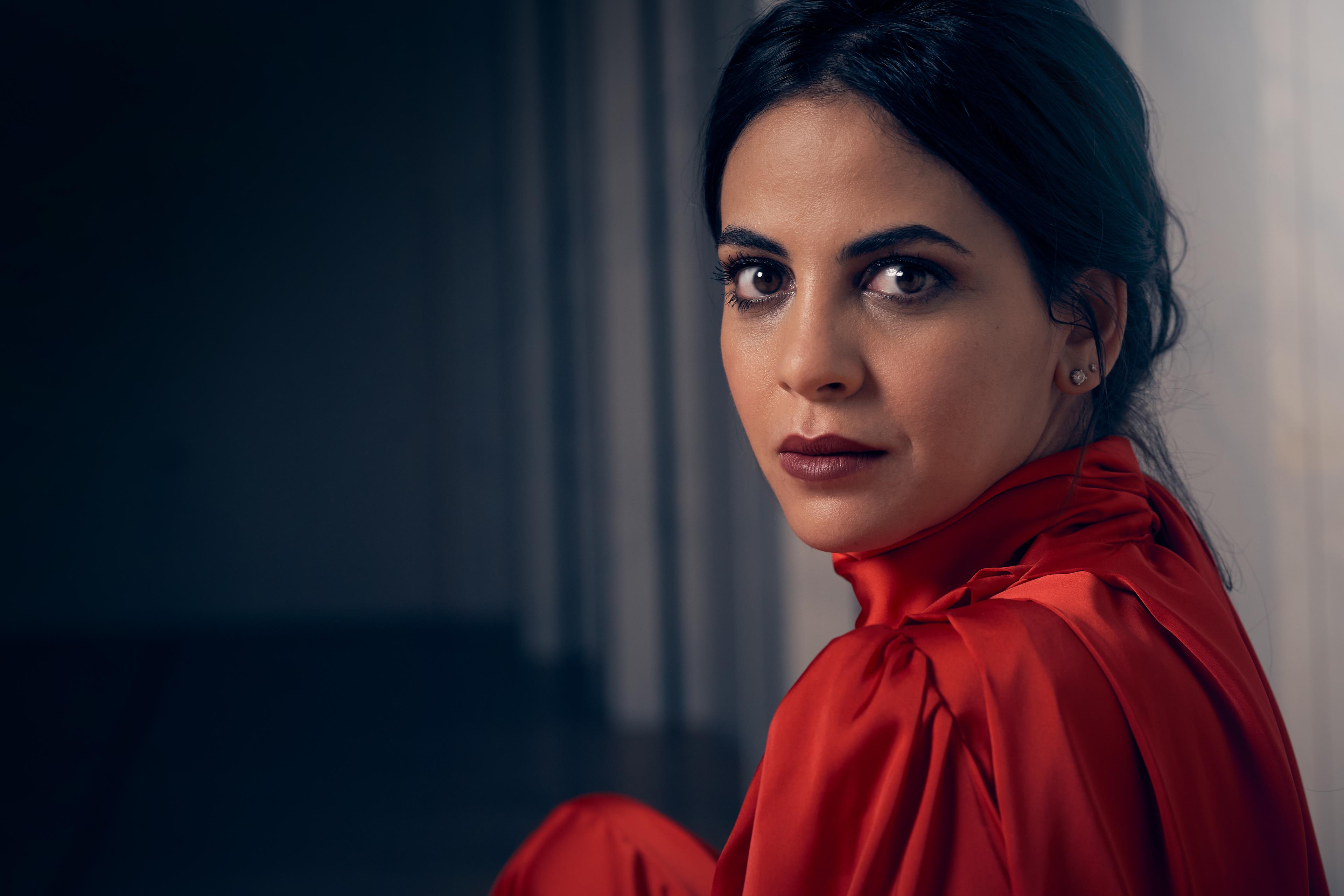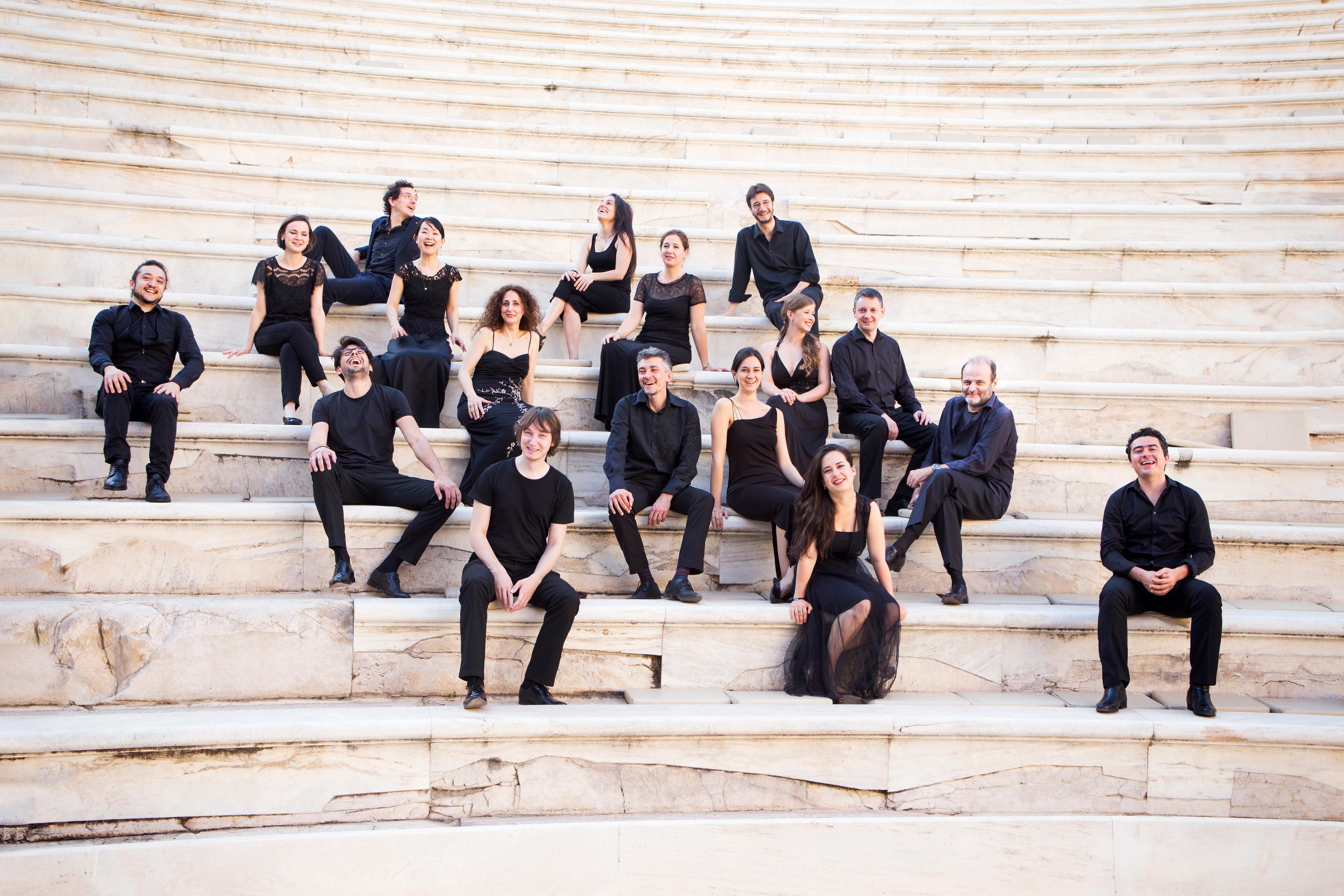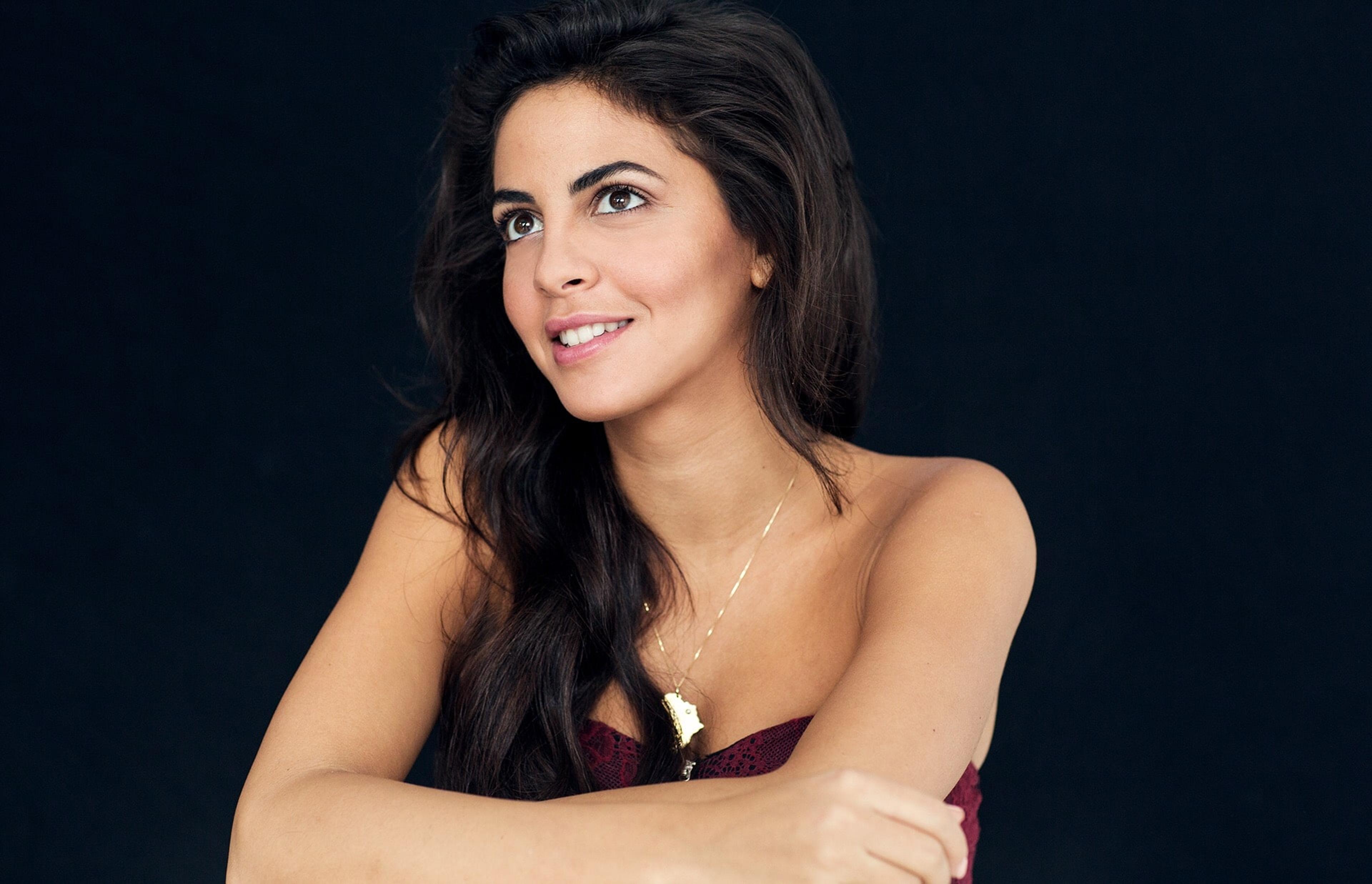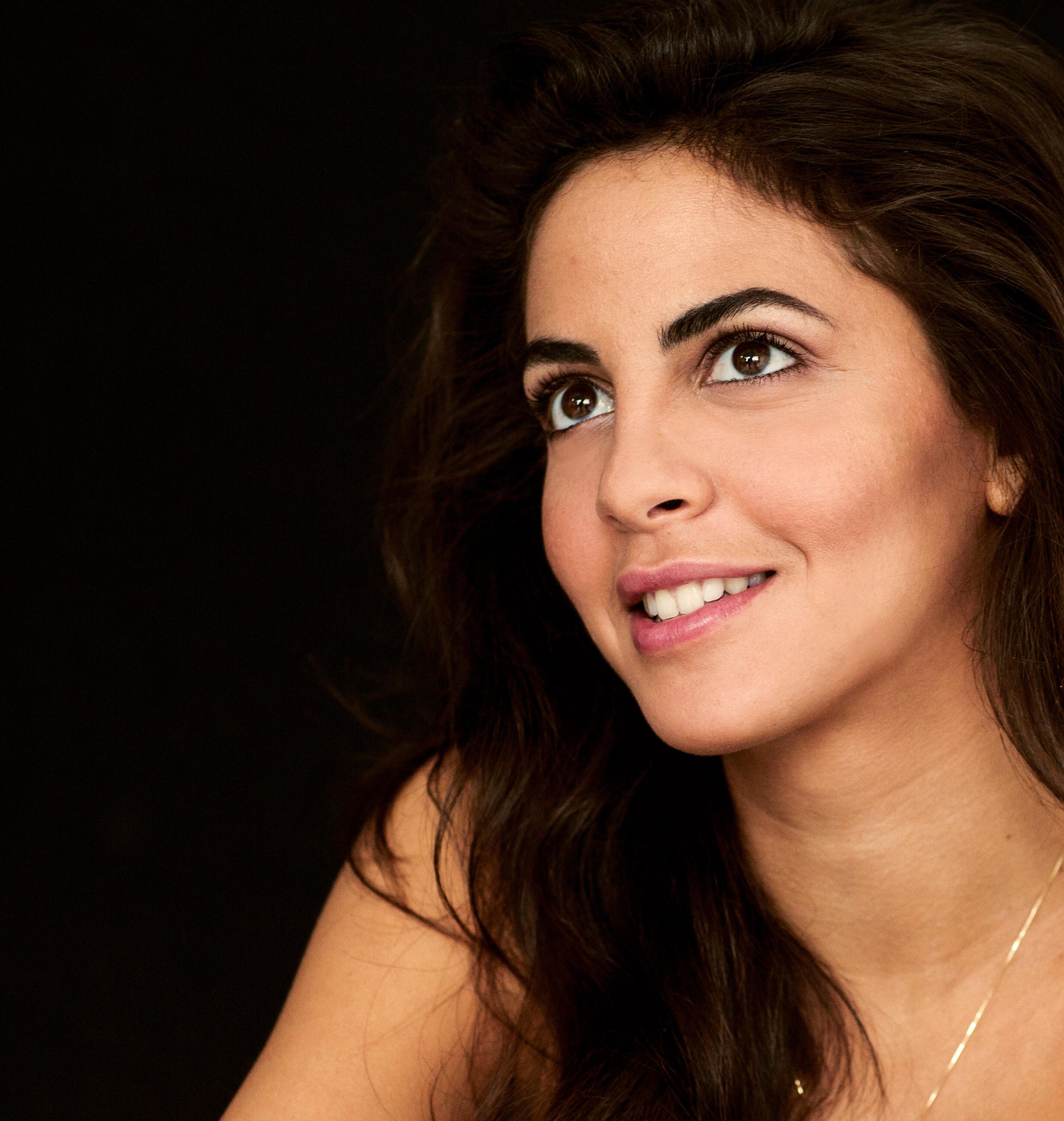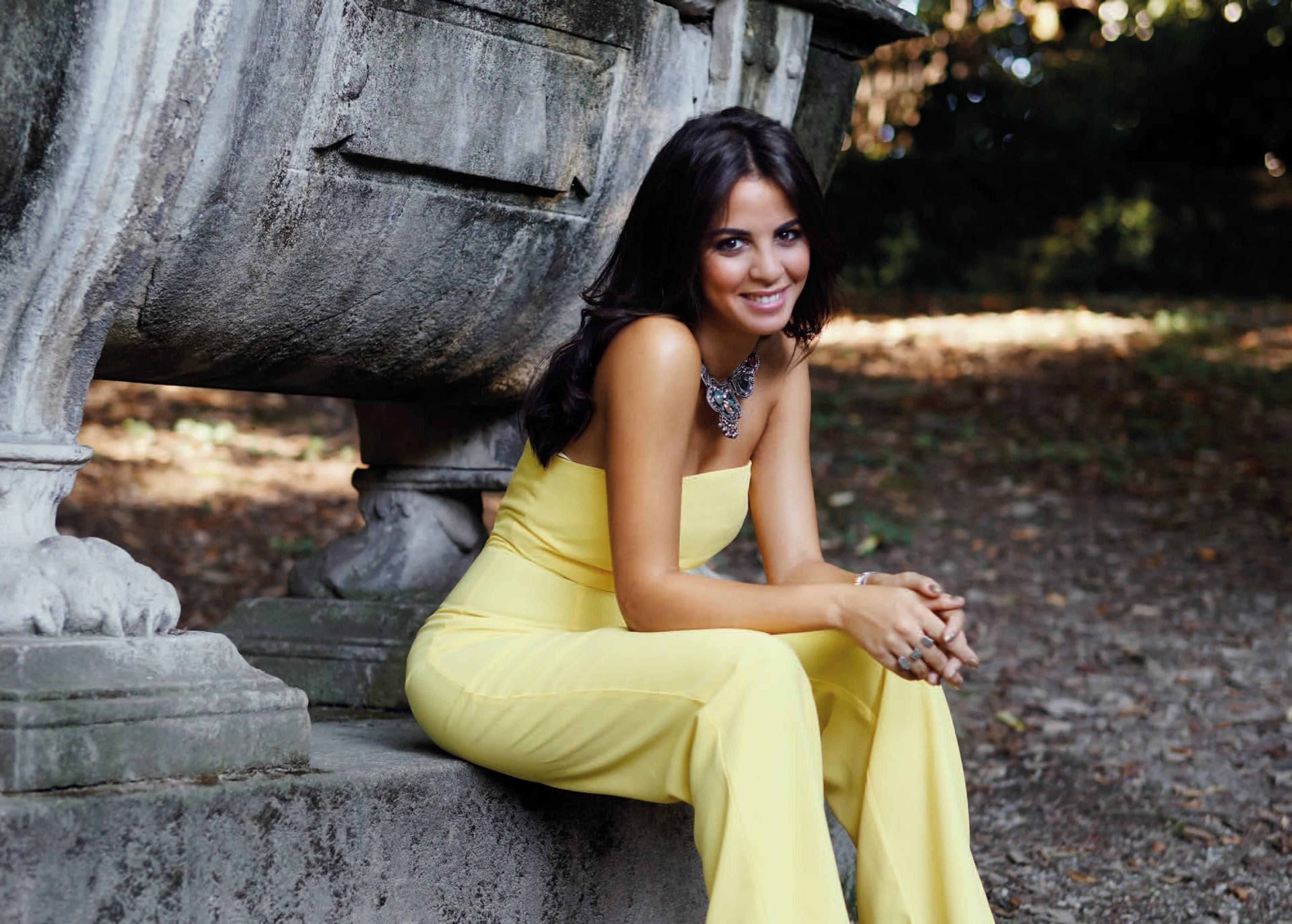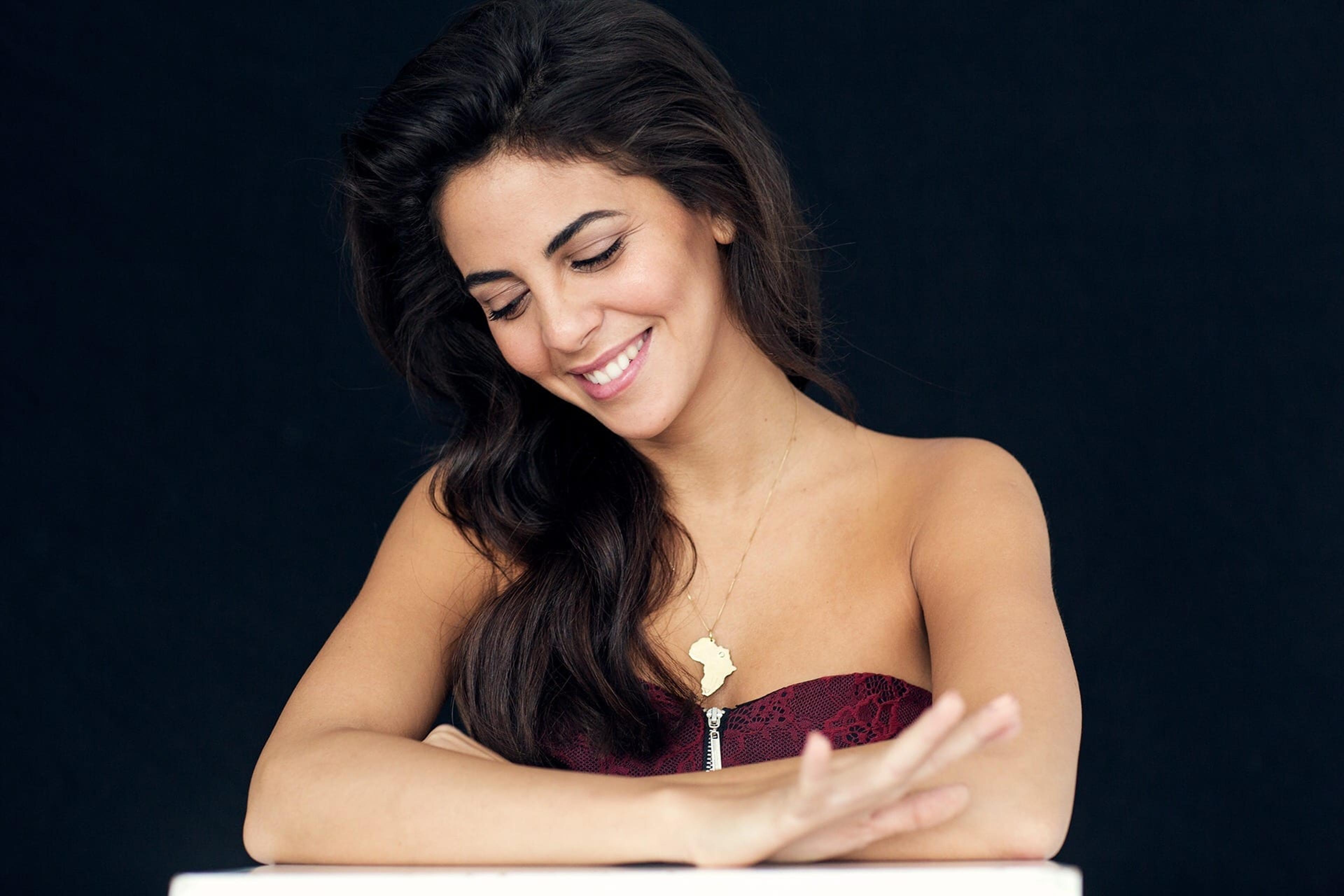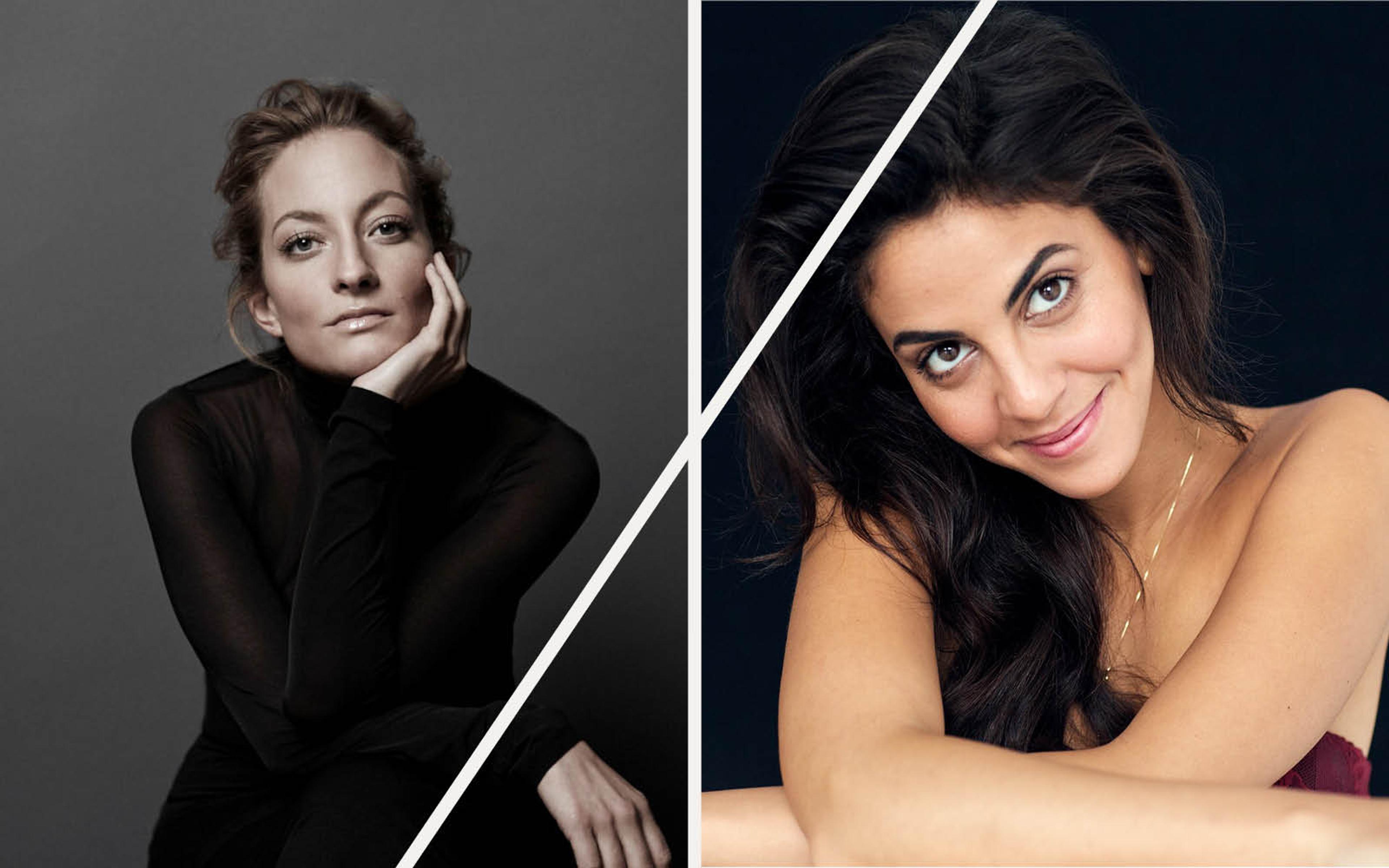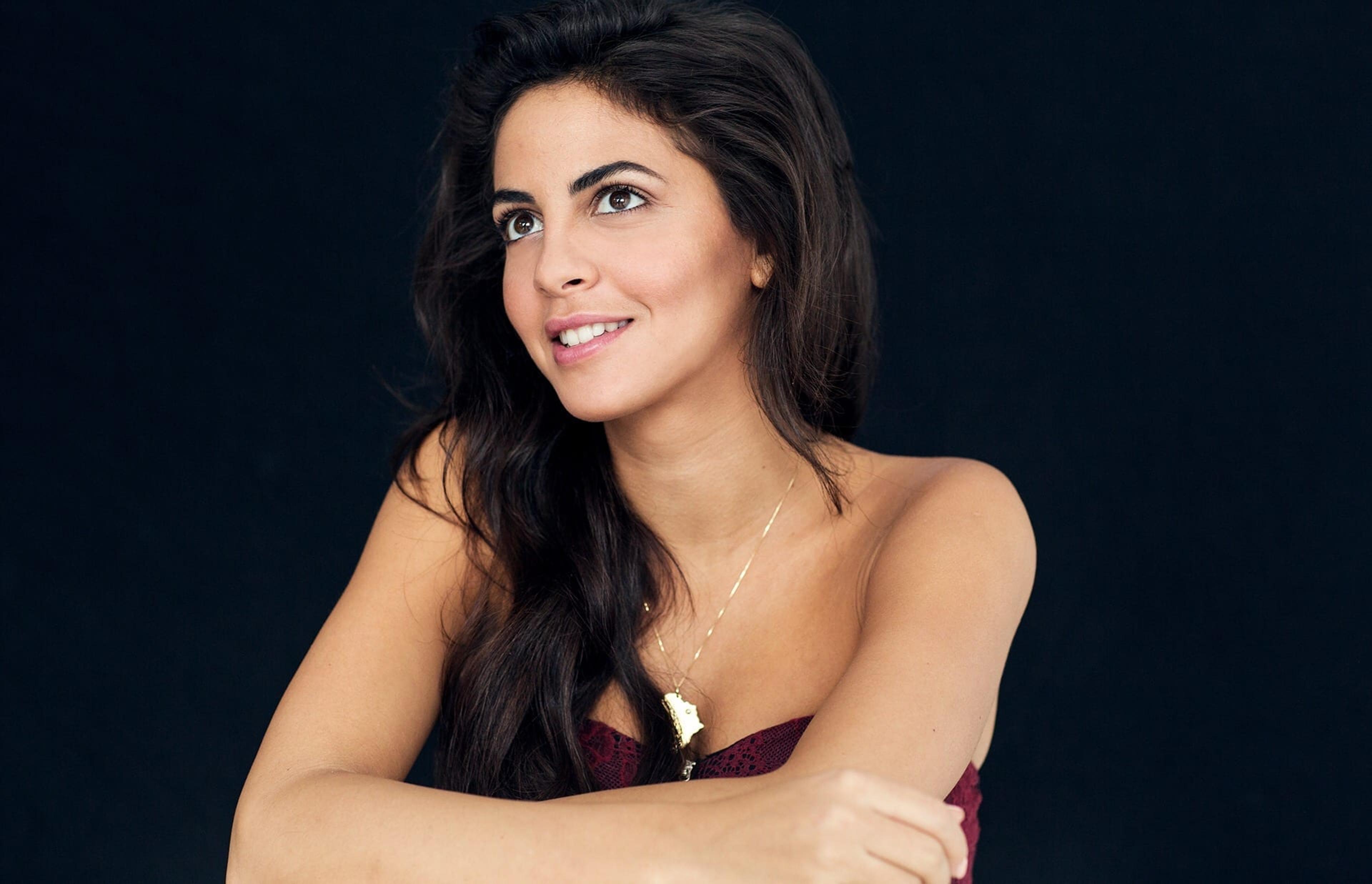FatmaSaid
- Soprano


About Fatma
Born in Cairo, soprano Fatma Said has charted a remarkable journey from Egypt to the world’s leading concert halls and opera houses. As the first Egyptian soprano to study at the Accademia of Teatro alla Scala in Milan, she quickly drew international attention with her radiant voice and captivating artistry. Today, she is celebrated as one of the most distinctive sopranos of her generation, equally at home on the operatic stage, in concert repertoire and as a passionate Lied interpreter.
An exclusive Warner Classics artist, she has released three acclaimed studio albums. Her debut El Nour (2020) was awarded the Gramophone Classical Music Award, BBC Music Magazine Vocal Award and Germany’s Opus Klassik. Kaleidoscope (2022) showcased her versatility across genres, while Lieder (2025) was celebrated as one of the most exceptional Lied recordings of recent years, praised, among others, by SWR Kultur for her unique ability “to truly revive the genre for our present day with heart, soul, musicality and sensibility.” Further releases in 2025 include Purcell’s Dido and Aeneas alongside Joyce DiDonato, and Mozart & Mevlana, pairing Mozart’s Requiem with a newly composed work by Fazıl Say.
The 2025/26 season sees Fatma Said in high demand across Europe. She appears in recital with pianist Joseph Middleton at Prinzregententheater in Munich. A special highlight is a concert at the Theatre Royal Drury Lane in London, dedicated to the music of the Egyptian composer Mohamed Abdelwahab in a symphonic setting. She also collaborates with Giovanni Antonini and the Lucerne Symphony Orchestra, makes her debut with the Orquesta de la Comunidad de Madrid in Mahler’s Symphony No. 4, and returns to the Théâtre des Champs-Élysées for a performance of Pergolesi's Stabat Mater.
Highlights of recent seasons include debuts with the Berliner Philharmoniker, Boston Symphony Orchestra, Cleveland Symphony Orchestra, the Lucerne Symphony Orchestra and Staatskapelle Dresden for the ZDF New Year’s Concert, as well as performances at major international venues such as Teatro alla Scala, Staatsoper Berlin, Staatsoper and Elbphilharmonie Hamburg, Carnegie Hall, Teatro San Carlo Naples, Gewandhaus Leipzig, Philharmonie Cologne, Mozarteum and Festspielhaus Salzburg, Royal Albert Hall, Shangyin Opera House and the Royal Opera House Muscat. She has appeared at festivals including Mozart-Woche Salzburg, BBC Proms, Schleswig-Holstein Musik Festival, Schubertiade, Lockenhaus, Wexford Opera, and the Schumannfest in Bonn.
Download programme biography:
in English auf Deutsch
Contact
For availability and general enquiries:

Joel Thomas

Kate Robson
Representation
Season Highlights
Video
- Playing
Fatma Said sings "Für mich soll's rote Rosen regnen" (Hildegard Knef)
Credit: Warner Classics
Fatma Said sings "Misera abbandonata" (Haydn's Arianna a Naxos)
Fatma Said sings "Misera abbandonata" from Haydn's "Arianna a Naxos with the Berlin Philharmonic and Giovanni Antonini. Live webcast from 2 November 2024 at the Berliner Philharmonie. Credit: Fatma Said
Fatma Said sings "Widmung" (Schumann: Myrthen, Op. 25: No. 1)
Fatma Said performs Schumann’s moving Widmung with pianist Joseph Middleton, capturing the essence of passion and grace in this cherished love song. Credit: Fatma Said
Fatma Said sings "I Could Have Danced All Night" (My Fair Lady)
Fatma Said sings the exhilarating melody "I Could Have Danced All Night", a shining moment of the heroine from the beloved Broadway musical My Fair Lady. 🌟 Listen to the full song now on digital platforms: https://w.lnk.to/kalFA Recorded with the Orchestre Philharmonique de Monte-Carlo and conductor Sascha Goetzel for Fatma's upcoming album, Kaleidoscope. Out September 2nd! Credit: Fatma Said
Fatma Said sings Ad Ay Sa’ab قد أى صعب (Villoldos: "El Choclo")
New single! 🌟 This Arabic version of Villoldos's tango-style "El Choclo" was written specially for Fatma Said فاطمة سعيد by Egyptian songwriter TAMER HUSSIEN for her upcoming album, Kaleidoscope. Fatma describes the music as "very expressive and determined", which she finds fitting of "strong and independent Arab women who are proving day after day how powerful their voices are." Ad Ay Sa’ab قد أى صعب is recorded with the Quinteto Ángel. فاطمة سعيد تطلق أحدث أغانيها «قد أى صعب» من ألبوم كلايدوسكوپ والمنتظر صدوره فى ٢ سبتمبر المقبل الأغنية مستوحاه من ألحان أغنية أرجنتينية تحت اسم "الشوكلو" من ألحان أنخل فيلولدو و تم تسجيلها مع فرقة "كوينتتو أنخل" الموسيقية وتعاونت "فاطمة سعيد" لأول مرة مع الشاعر الغنائي تامر حسين، لاختيار كلمات تعبر عن الإحساس بالعزيمة والإنتصار وعزة النفس الأغنية موجهة لفتيات وسيدات مصر والعالم العربي المكافحات واللاتي يواجهن تحديات الحياة على المستوي الشخصى و النفسي و المهني Credit: Fatma Said
Fatma Said on NDR Das! Singing and playing Aatini Al Naya Wa Ghanni
NDR Das! With Hinnerk Baumgarten Credit: Fatma Said
Fatma Said - Abdelwahab / Arr. Whitbourn: La mosh ana-l-abki لأ مش أنا اللي أبكي (Live in Berlin)
أغنية: «لأ مش أنا اللي أبكي» من الحان: محمد عبدالوهاب كلمات: حسين السيد توزيع: چايمز ويتبورن غناء: فاطمة سعيد قيادة الأوركسترا: ألوندرا دي لا بارا أوركسترا : كونسرت هاوس برلين كونسرت هاوس برلين Song title: la mosh ana-l-abki Composer: Mohamed Abdelwahab Lyrics: Hussein El Sayed Arrangement: James Whitbourn Sung by: Fatma Said Conductor: Alondra de la Parra Orchestra: Konzerthaus Berlin Venue: live at Konzerthaus Berlin Credit: Fatma Said
Fatma Said sings "Aatini Al Naya Wa Ghanni" at the OPUS KLASSIK 2021 Gala
Egyptian soprano Fatma Said performs "Aatini Al Naya Wa Ghanni" (Give me the flute and sing), which features the poetry of Gibran Khalil Gibran, live at the Konzerthaus Berlin. Discover her recording of this song on her debut album, El Nour النور: http://w.lnk.to/elnLY Nay-flute: Rageed William Piano: Tim Allhoff Orchestra: Konzerthausorchester Berlin Conductor: Cornelius Meister Arrangement by Tim Allhoff Filmed at the OPUS KLASSIK gala on the 10th of October 2021 in Berlin. Credit: Warner Classics
Fatma Said sings Yo Soy María (Piazzolla: María de Buenos Aires)
Soprano Fatma Said sings as the radiant María from Astor Piazzolla's tango opera María de Buenos Aires in this selection from her album Kaleidoscope. Discover here: https://w.lnk.to/kalLY "There’s a reason – in fact many reasons – why Piazzolla chose the tango, his own natural mode of expression, to evoke the passion and truth behind a real love story: whatever the situation, the tango is always the release, an expression of the freedom a couple have often been denied in their lives. Tango leaves a lot of space for a woman to express herself – it’s a situation where a woman is not dependent on a man, and where she knows herself, her core – physically but also internally." – Fatma Said She has recorded this piece with the Quinteto Ángel, Heinrich Köbberling on drums and percussion, and Philip Krause on percussion. Dancers: Fatma Said, Alejandro Angelica Video Director: James Bort Assistant Video Director: Adrien Bernard Devillette Fashion Stylist: Aurore Donguy Hair & Makeup: Ilka Jänicke Special thanks to Konzerthaus Berlin. Credit: Warner Classics
News
Press
Through The Noise
Lafayette, LondonSep 2023‘This concert is going to have a lot of French music and also French film music, which I especially love’. One of the most highly internationally acclaimed young concert and opera artists of our time gives us a clue about her programme for an upcoming event on 17 September – but Egyptian soprano Fatma Said will not be performing it in a concert hall. She will be appearing at the Lafayette auditorium in London’s Kings Cross which bills its entertainments as ‘Live music, street food and drinks – all under one roof’. It will be her second appearance at one of the groundbreaking events organised by through the noise – the radical brainchild of co-founders and directors Jack Bazalgette and Jack Crozier in which greatly in-demand young classical artists come to crowd-funded venues and clubs to perform as part of evenings that also include sets of jazz, afro-beat and funk. The virtuoso Fatma Said triumphed with the audience for her first through the noise event at the Oslo Hackney earlier this year, singing music she had recorded last year for her enormously successful Warner Classics album Kaleidoscope. For Fatma Said this has been a profoundly rewarding discovery that reverberates with her strongly-felt ideals. She had already been highly extolled in an eclectic range of musical genres, and yet, as she explains, the invitation from through the noise was something appealingly new. ‘They told me, “Just do what you want.” Now nowhere else says that to me! That I could be 100% free in what I wanted to say was the first attraction when I was offered this possibility. But then what surprised me and what I didn’t see coming was the whole setting and the wonderful interaction with the audience. First of all, there are no chairs – everyone is standing all the time – so the atmosphere is like it is at a pop concert where the audience always stands informally, and I love that. I would say the average age group is between around 18 and 40, and these are not people who go to opera houses and concert halls, so the fact that I could perform in front of them meant a lot to me. For classical music’s future I think it is really important that an initiative like through the noise should take place more and more because it gives the opportunity for the artist to go to the places where young people are – and that is how we can nurture this generation’s love of classical music. If we don’t reach out to them, they will have zero interest in coming to our concerts – but if we go to them in their places instead of trying to devise ways of bringing them to our concerts, then they are going to become our new audience later on.
- Classical Music
- 21 August 2023
Rectial
Carnegie HallApr 2023An impeccable sense for vibrato lent shimmer to Said’s broad range of vocal timbres. At times, her technique enriched the creamy splendor in her operatic mode. At others, it heightened the drama of her chesty lower register, an enrapturing evocation of the Romani singers associated with Spanish flamenco. And, in carefully meted moderation, Said used that choice vibrato to develop glints of intensity in her stunning, straight-toned pianissimo. Time stood still when she spun those breathy whispers, her tone blossoming ever so gradually over fermatas sustained to near-superhuman length.
- Classical Voice SF
- 11 April 2023
Recital
Edinburgh International FestivalAug 2021Egyptian soprano Fatma Said came to fame as the first Egyptian to sing at La Scala, Milan, as Pamina in The Magic Flute; but this Edinburgh International Festival debut was carefully crafted to show that she can do a lot more than Mozart. She cuts a slight but glamorous figure on stage, and as soon as she opens her mouth you can tell why La Scala was keen to hear her in Mozart. The voice is light and deliciously fresh, with a bright, silvery top. In Mozart terms, hers is a soubrettish Zerlina or a Blonde, a voice in whose company it is really delightful to spend an hour. She also acts delightfully as she sings, investing today’s Mozart songs with lots of power and urgency. Each of these songs, after all, is a little drama of its own, and Said pays them the great compliment of taking them seriously on their own terms rather than as consolation prizes for the operas. She found a touch of exoticism in Ravel’s Greek songs, an alluring sensuality entering the voice, revelling in Ravel’s eastern inflected chromaticisms. Nowhere was this more notable than in the ‘Song of the lentisk gatherers’, with its limpid sense of pleasure mixed with yearning.... ...She guides us clearly through the travelogue of ‘Asie’ with colour that was, by turns, mysterious, yearning, excited or tremulous; breathless in the pointed artifice of the final line. Perhaps the final Spanish songs were the most involving, however, because they contained so many surprises, be it the hyperactive piano line of Falla’s ‘Seguidilla murciana’ or the languid sorrow of his ‘Asturiana’. Said coloured her voice so carefully here that it was almost as though a different singer had sung the earlier Mozart, achieving a powerful impression of a cante jondo in Falla’s ‘Polo’, before performing the same marvellous differentiation in the dark lullaby of Lorca’s ‘Nana de Sevilla’. Not only was this recital technically perfect, but it showcased such a range of colour and vocal variety that it announces a major talent.
- Seen and Heard International
- 29 August 2021







